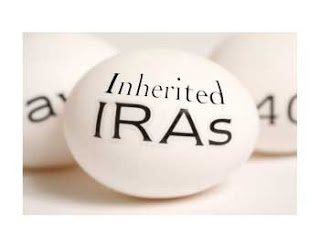My home might get foreclosed and I might have a tax liability as a result? Are you kidding me? Unfortunately, not, but with some proper planning a person in such a situation might be able to avoid a tax liability resulting from the foreclosure.
As a result of the decline in the real estate market and the increase in interest rates many homeowners are facing a situation where their home is worth less than what they owe to the bank on it. These people often have adjustable rate loans that have begun increasing after an introductory lock-in period and these homeowners can no longer afford the mortgage on their home. Accordingly, these owners are looking at possible foreclosure, short-sale, or bankruptcy. Depending on a variety of factors there may be a tax liability lurking out there that needs to be addressed and planned for or around.
However, before digging into the substance of these issues, a “short-sale” is a sale where an owner owes more on their house than it is worth and the owner works out a deal with the lender to accept less than full payment upon a sale. A foreclosure is an event where the bank repossesses a residence from an owner and sells it to pay off the loan. The tax characterization of a short sale or a foreclosure is essentially the same. It is deemed a sale by the taxpayer. However, the type of debt involved will determine what type of income results from such a sale; i.e., gain or loss from the sale or exchange of an asset or cancellation of indebtedness (“COD”) income.
A short sale or foreclosure may result in COD income to the borrower when recourse debt is involved. The lender’s taking of the property in satisfaction of the recourse debt is treated as a deemed sale with proceeds equal to the lesser of the FMV at the time of foreclosure or the amount of secured debt. If the amount of debt exceeds the FMV, the difference is treated as COD income if it is forgiven.
COD income occurs in a foreclosure transaction only if the lender discharges part or all of any deficiency on taking the property securing it. If the lender fails to pursue the borrower or to discharge all of the indebtedness, COD income results when the status (under state law) for enforcing the debt expires.
To illustrate the above, consider the following example. Bob and Sue purchased their home in 2001 for $400,000. They put down $20,000 and obtained a 30-year recourse mortgage from the Bank. In subsequent years, the real estate market was red hot, resulting in Bob and Sue’s home being appraised at $550,000 in December 2004. The couple decided to borrow an additional $100,000 (home-equity line, interest-only payments) against their home from another lender, Bank #2. From 2001 until early 2006, Bob and Sue made their mortgage and home-equity line payments timely. In April 2006, when their outstanding principal balances on the first mortgage and the home-equity line were $365,000 and $100,000, respectively, they stopped making payments. The residential real estate market also weakened in 2006 as values fell.
In December 2006, Bank sold the property at a foreclosure sale for $450,000 and was paid back the outstanding balance of its loan of $365,000. Bank #2 was not as lucky and was paid only $80,000, leaving a deficiency of $20,000 that Bank #2 forgave. Bank #2 sent Bob and Sue a 2006 Form 1099-C reporting COD income of $20,000.
What are the tax results of this example? When property burdened by recourse debt is foreclosed and the debt exceeds the property’s FMV, the transaction is treated as a deemed sale for a price equal to the FMV. The deemed sale will trigger a gain on the sale of Bob and Sue’s home of $50,000 ($450,000 foreclosed bid–$400,000 basis) in 2006. Since Bank #2 discharged the $20,000 deficiency, Bob and Sue will also realize $20,000 COD income in 2006, which will be fully taxable unless they are bankrupt or insolvent.
The bright side is that the $50,000 gain on the sale should be eligible for exclusion under the Sec. 121 home sale gain exclusion (Sec. 121; Regs. Sec. 1.121-1). However, this gain exclusion cannot shelter the COD income because COD income does
not count as home sale gain. The COD income arises in a separate transaction between borrower and lender and is taxable unless one of the exceptions under Sec. 108 applies.
However, the results can be different if non-recourse debt is involved. A foreclosure transaction involving non-recourse debt is treated as a deemed sale by the borrower to the lender with the sales proceeds being equal to the amount of non-recourse debt (Tufts, 461 US 300 (1983)). The deemed sale will trigger a gain if the non-recourse debt amount exceeds the home’s tax basis.
Treating the full amount of non-recourse debt principal as the amount realized from a deemed sale means there cannot be any COD income due to a foreclosure sale involving only non-recourse debt. Unlike the treatment of foreclosures involving recourse debt, the FMV of the property is not important. Also, the insolvency or bankruptcy status of the taxpayer does not affect the results.
To illustrate this situation go back to the above example, except the mortgage and home-equity line are non-recourse debt. The deemed sale will trigger a gain of $65,000 on the sale of Bob and Sue’s home ($465,000 non-recourse debt and $400,000 basis) in 2006. There is no COD income because the debt is non-recourse. Because Bob and Sue met the Sec. 121 qualifications, the gain should be excludible from gross income. The drawback to this situation would be if Bob and Sue had only lived in the residence for a period of one year in which case they would not have qualified for the home sale exclusion, and therefore would be taxed on the $65,000 gain.
When dealing with sales of principal residences we have the home gain exclusion. When dealing with COD income there are also some exceptions. To two primary exceptions are situations where the taxpayer is insolvent or in bankruptcy. Essentially, if the taxpayer’s residence is sold through a bankruptcy proceeding and the debt is discharged in the bankruptcy proceeding, there is no COD income. In situations where the taxpayer is insolvent immediately prior to the sale there is no COD income to the extent the taxpayer is insolvent. For example, if the taxpayer was insolvent to the extent of $50,000 but received COD income of $65,000, the taxpayer would have COD income of $15,000. The key to the insolvency exception is being able to prove the insolvency after taking into consideration various rules that are too extensive to be discussed here. If you or someone you know is facing a foreclosure, short sale or possible bankruptcy, consideration should be given to the possible tax ramifications from those events. A little planning and the proper advice from a tax professional before engaging in such a transaction could be very beneficial and provide you or someone you know the fresh start or relief needed.
Pursuant to requirements related to practice before the Internal Revenue Service, Circular 230, any tax advice contained in this article is not intended to be used, and cannot be used, for purposes of avoiding penalties imposed under the United States Internal Revenue Code.




